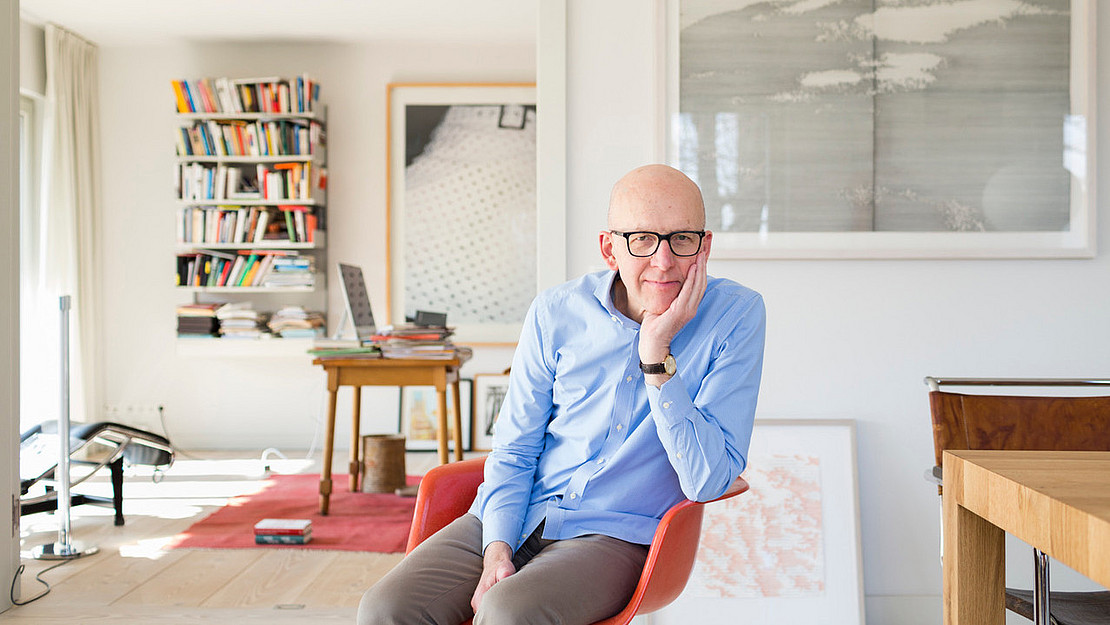The content on this page was translated automatically.
"The Europe of values no longer exists".
 Image: Dawin Meckel.
Image: Dawin Meckel.Professor Bude, how will we look back from the spring of 2021 on the crisis that we hope will have been overcome by then? How will it have changed our society?
This pandemic marks the end of a 40-year period that began when Margaret Thatcher and Ronald Reagan took office. Politicians and society relied on the individual's drive for freedom and personal responsibility, empowered by competition and valuing the market as a discovery process. Property, education and subjective rights were supposed to enable subjects to lead a life of their own choosing. Winner-take-all markets celebrated laughing winners, and those who did not come along were left to be defenseless. With the election of Donald Trump, it became clear that the majority in Western societies does not seek freedom but protection. The Brexit, the yellow vests and the movements from the right have confirmed this turn for Europe as well.
What is taking the place of individualism?
The guiding principle of solidarity. Solidarity has long been understood as something that is there for the others. For those who cannot take care of themselves. In other words, as a form of help that the strong offer to the weak. The virus has brought everyone at once on an equal footing. Because we are vulnerable as individuals, we depend on each other. Solidarity means mutual help. We offer each other protection by keeping our distance from each other. Solidarity thus becomes a practice between people that does not need the detour via the people. Nevertheless, this solidarity needs an embodiment. In the situation of danger for the community, this is the state. There is the sudden realization of society's need for the state. This is not an authoritarian, not a patriarchal state, but a statehood from the spirit of solidarity.
If, as you note, the ideal of the strong individual has been crumbling for some years now - is that a reaction also to phenomena like climate change?
Yes exactly. It's about protection, about the realization that even strong individuals can't save themselves.
So now the Corona crisis is showing us the value of solidarity. Doesn't it also make it more difficult to practice this solidarity?
I would say it shows us the necessity of solidarity. Caregivers and nurses and cashiers are systemically important. They keep the infrastructure going that we need and that gives us protection. At some point, when the Corona crisis is over, the people who ensure the normal functioning of our society will claim their prize. And that is a good thing.
But at the same time, the crisis makes it difficult to put mutual aid into practice, doesn't it? The opportunities and places to meet are drastically diminishing.
Solidarity is not just empathy! Solidarity can also mean being disciplined, taking care of each other. A practical example: If the schools were to remain closed even longer, then parents would communicate with each other about how they could help each other. And that's regardless of whether they are close friends or practice the same parenting style. Employers are also challenged to come up with solutions with their employees so that the home can be the workplace and the school.
Let's stay with families. You can manage to squat on each other for two or three weeks without an accident if you pull yourself together a bit. But when all families are thrown back on each other for four or six or eight weeks and at the same time have only a minimum of physical external contact - that has to leave its mark, doesn't it?
That's a forced intimation that can cause problems at some point. But this is also about solidarity, about resilience, about taking responsibility. It would be unsolidaristic to expect help only from others or from the state.
The institution of the family has always been a school of solidarity...
In situations like this one, at least, one realizes that it is not so easily replaceable. In the family environment, parents and children can learn how to create unity out of differences. That's where things sometimes crack, but you also know that there are moments when it's clear to everyone what's at stake.
Another momentous change is the huge push for the digitization of everyday life. Online retailers are doing the best business, the home office is working thanks to newly learned programs, and now a contact app is to become the guardian of us all....
Wait a minute! This German approach to a voluntary app is not about centralized monitoring. It's about a voluntary instrument of mutual consideration. I expressly welcome this, at least if it is combined with care structures, i.e. with an understanding about how I can protect my neighbor and how I care for those who are quarantined.
Will solidarity also show up at the European level? Will we help the Italians get on their feet?
The EU has changed its foundations not only since the Corona crisis. There is no European law of nature of ever further integration and deepening. The old Europe of values no longer exists. Instead, there is now a Europe of common problems. In it, solidarity is proving itself not as a value, but as a practice. This applies not only to supply chains and refugee flows, but also to mutual financial support. After all, the assets of some are the debts of others.
You mean that Europeans now clearly see that they are all in the same boat, and therefore everyone must row as well.
They say so. And that can be a much more resilient basis. My formula is hope without optimism.
Prof. Dr. Heinz Bude heads the Department of Macrosociology at the University of Kassel. His book "Solidarity. The Future of a Big Idea" was published almost exactly a year ago.
Interview: Sebastian Mense